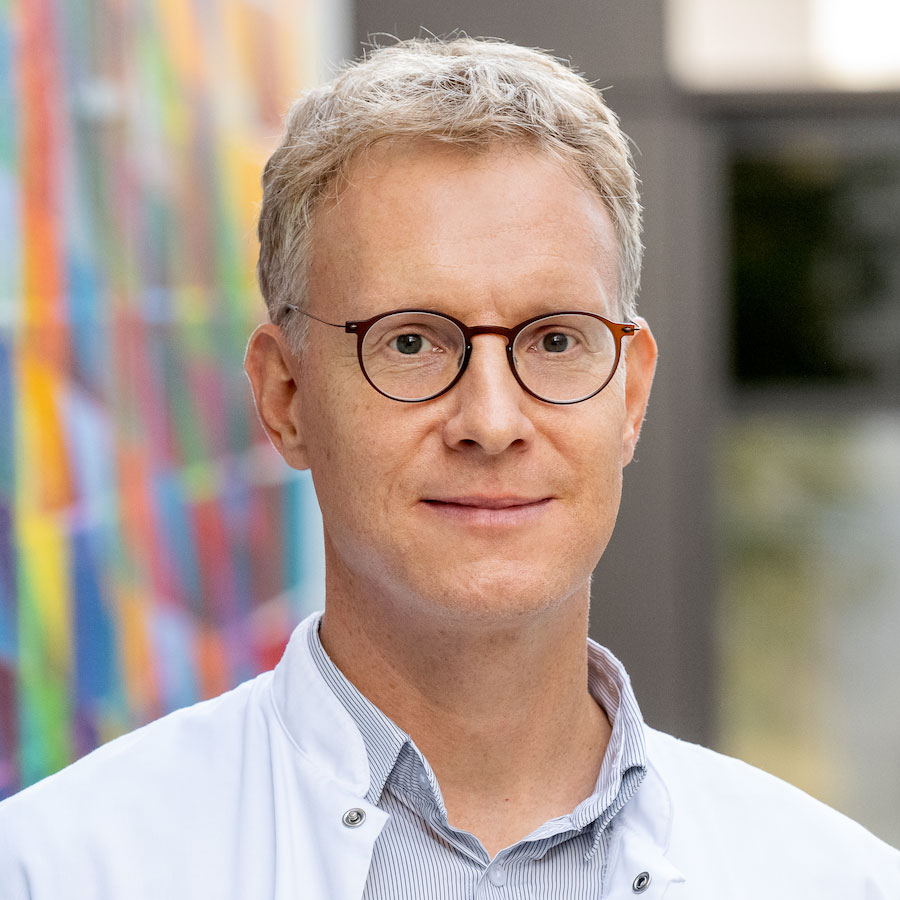Speaker

Prof. Dr. Simon N. Jacob - Professor Translational Neurotechnology - TUM School of Medicine and Health (Technical University of Munich)
Prof. Jacob studied medicine in Freiburg and Heidelberg, at University College London (UK) and at Harvard University (USA) as a fellow of the German National Academic Foundation. He obtained his medical doctorate degree in 2006 based on experimental neurophysiological work conducted at Yale University (USA). Prof. Jacob was a postdoctoral researcher at the Center for Integrative Neuroscience in Tübingen and qualified as a board-certified neurologist after training in Tübingen and at the Charité in Berlin. In 2015, Prof. Jacob moved to TUM where he established an interdisciplinary research group investigating the neuronal mechanisms of cognitive brain functions. He was appointed professor for Translational Neurotechnology in 2019.
ABSTRACT:
Neuronal inventory of a right-hemispheric language network in an individual with aphasia
Language is singularly and quintessentially human. It constitutes one of the most formidable sensorimotor integration functions of the human brain. While the cortical regions in the frontal, temporal, and parietal lobes that comprise the language network have already been identified, there are vast gaps in our understanding of the neuronal mechanisms that govern how we engage in verbal communication and how we use language to represent and convey thoughts, intentions, and emotions. I will present our ongoing efforts to develop a brain-computer interface with cellular resolution for patients with language disorders (aphasia) after brain injury (stroke). Using large-scale neurophysiological recordings from microelectrode arrays chronically implanted into right-hemispheric cortical regions homotopic to the left language regions, we are investigating how linguistic elements are encoded at the single-neuron and neuronal population level and how local and long-range neural connectivity underlie our ability to produce and comprehend language. The long-term goal of our transdisciplinary work is to explore neurotechnological approaches that leverage right-hemispheric cognitive resources for treating acquired disorders of language.
CIN Symposium 9-10
 Registration website for CIN Symposium 9-10
Registration website for CIN Symposium 9-10CIN Symposium 9-10cin@maastrichtuniversity.nl
CIN Symposium 9-10cin@maastrichtuniversity.nlhttps://www.aanmelder.nl/cin09102025
2025-10-09
2025-10-09
OfflineEventAttendanceMode
EventScheduled
CIN Symposium 9-10CIN Symposium 9-100.00EUROnlineOnly2019-01-01T00:00:00Z
Maastricht UniversityMaastricht UniversityMinderbroedersberg 4-6 6211 LK Maastricht Netherlands
